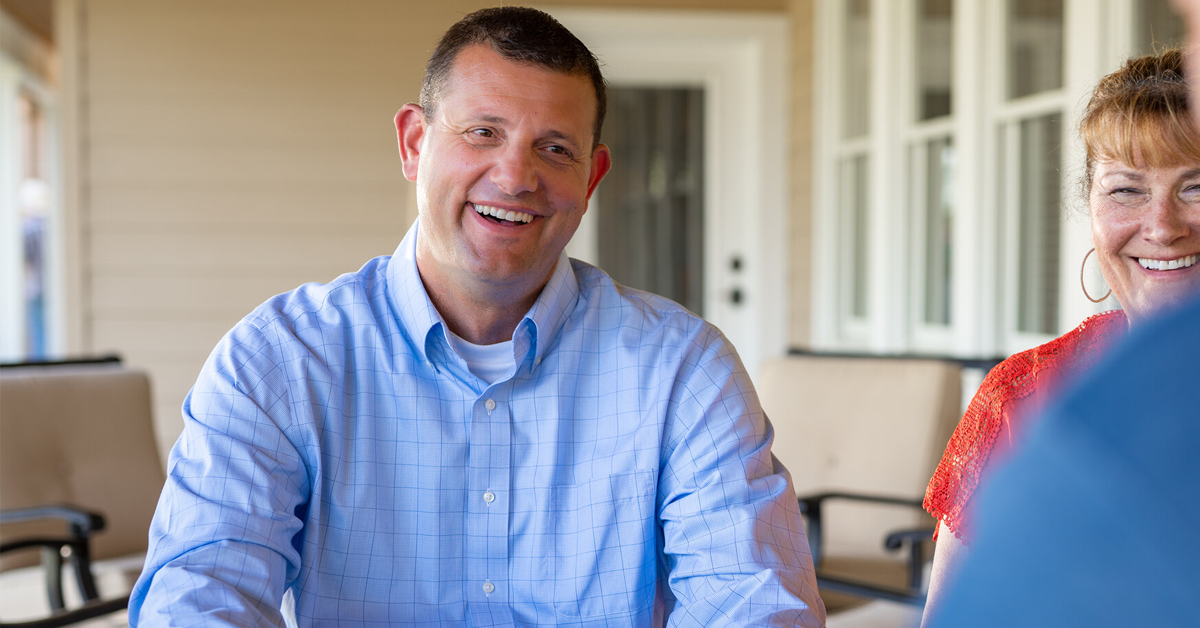Tuesday, the House Committee on Natural Resources discussed the increased need for water storage in California and the rest of the western United States given the highly above average precipitation after years of drought.
The Subcommittee on Water, Wildlife and Fisheries held a hearing on long-term drought and the water storage issues throughout the reasons to discuss the situation and possible solutions.
The big picture: The Subcommittee called four witnesses to testify on Tuesday, including one from the Central Valley: William Bourdeau.
- Bourdeau serves as the Vice Chair of the San Luis and Delta-Mendota Water Authority. He is also a director for Westlands Water District and chairman of the Valley Future Foundation, the nonprofit that operates The Sun.
State of play: In his opening remarks, Bourdeau noted that farmers throughout the Central Valley have spent billions of dollars to put drip irrigation systems in place, among other water-saving measures, to go along with the conservation efforts from municipal water users.
- But without proper water storage solutions, the nation’s future could be imperil if the Valley’s food production wanes.
- “If we want California agricultural production and the associated food security that accompanies it, we need to meaningfully invest in our infrastructure,” Bourdeau said. “I believe that it’s a national security issue. As a Marine, I understand if you cut off someone’s supply lines they become vulnerable. And if we rely on foreign countries for our domestic food supply capability, we become vulnerable.”
- He also spoke about the immense amount of water being flushed out into the ocean amid the recent storms to start the year, citing information from the Bureau of Reclamation that on a single day in March Shasta Reservoir captured 145,000 acre-feet of water, but on the same day California lost 200,000 acre-feet of water to the ocean.
- “While it is difficult to compare ourselves to the generations that came before us, we have the chance to implement meaningful change that will enhance the quality of life for generations to come,” Bourdeau said. “We need to identify the best projects and avoid over-studying, undue delays and build a better system. My hope is that today’s critical discussion on the future of the west and water infrastructure will pave the way for such transformative steps and a better future for generations to come.”
Go deeper: Rep. John Duarte (R–Modesto) asked Bourdeau about the possibility of reinforcing and raising existing dams, such as Shasta Reservoir, San Luis Reservoir and Lake Don Pedro.
- “I do believe there are locations that are well suited for large-scale storage projects,” Bourdeau said. “But what I thought is there are also existing dams or reservoirs that because of their aging infrastructure they need to be reinforced and retrofitted to make sure they’re safe, because we would hate to have a dam blow out and all the catastrophic actions that would occur as a result. So it may be cost effective to raise those dams as they’re reinforcing them to make them safe for society.”
- Rep. Tom McClintock (R–Elk Grove) centered the discussion on Shasta Lake, calling for the dam to be raised.
- “As you may know it was designed to be 800 feet,” McClintock said. “When it was built in 1944 it was built to only 600 feet. They didn’t need the extra water at the time. They simply assumed that the generations that followed would have the common sense to complete the dam. By adding that extra 200 feet of elevation it would mean an additional 9 million acre-feet of water storage, nearly tripling the capacity of the dam, nearly doubling storage in the entire Sacramento system.”
- But the current proposal is to increase the dam by 18.5 feet, an idea that has been in the works for three decades with nothing to show for it.
- “I believe it’s because we’ve been over-studying it,” Bourdeau said in response to McClintock. “By the time we’re done with the study it’s outdated and we have to study it again.”










